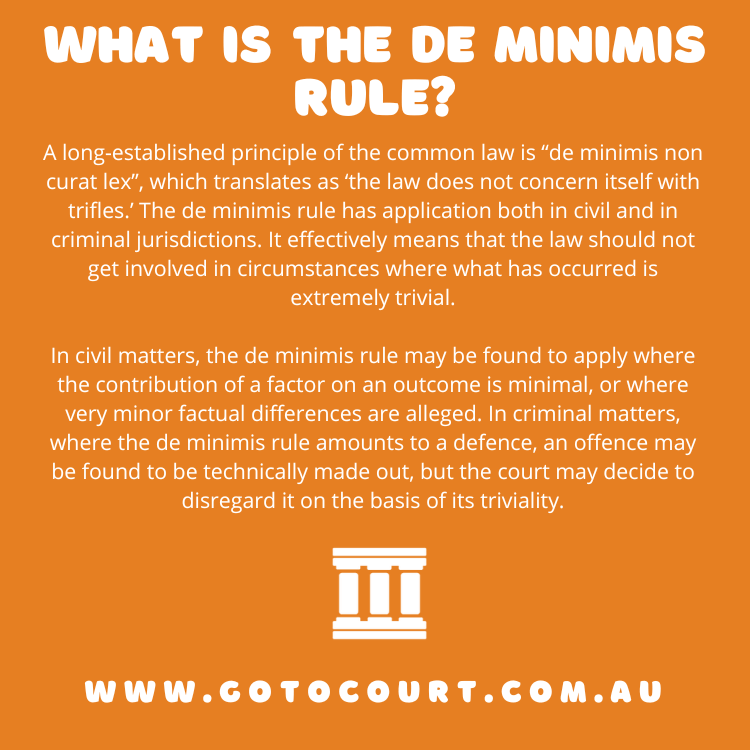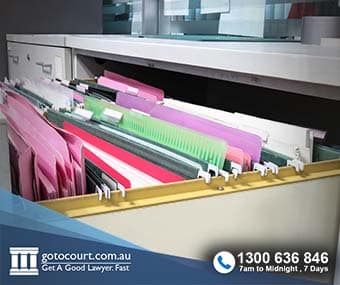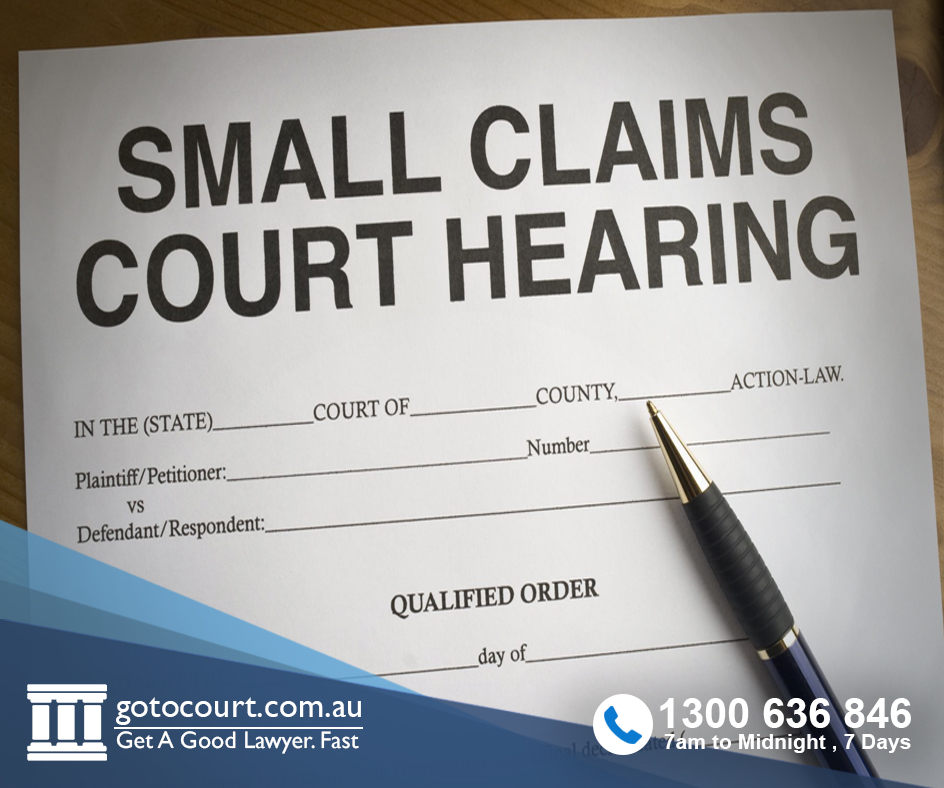Call our lawyers
now
or,
have our lawyers
call you
What Is The De Minimis Rule?
Updated on Nov 25, 2022 • 4 min read • 827 views • Copy Link
What Is The De Minimis Rule?
A long-established principle of the common law is “de minimis non curat lex”, which translates as ‘the law does not concern itself with trifles.’ The de minimis rule has application both in civil and in criminal jurisdictions. It effectively means that the law should not get involved in circumstances where what has occurred is extremely trivial.

In civil matters, the de minimis rule may be found to apply where the contribution of a factor on an outcome is minimal, or where very minor factual differences are alleged. In criminal matters, where the de minimis rule amounts to a defence, an offence may be found to be technically made out, but the court may decide to disregard it on the basis of its triviality.
Material degree
The concept of de minimis will often be considered in cases where the court must decide whether something contributed to an outcome ‘to a material degree’. This may be relevant in a range of civil and family law matters.
In the 2007 Federal Court of Australia decision of Comcare v Sahu Khan, the court elaborated on the meaning of a ‘material degree’ for the purposes of the Safety, Rehabilitation and Compensation Act 1988.
The court explained that for a factor to have contributed to a material degree to the illness or ailment suffered by an employee, the contribution must not have been so small that it did not influence the course of events. Such a contribution would be de minimus.
The ordinary dictionary meaning of ‘material’ must be applied, namely, ‘In a material degree; substantially, considerably.’ Such an interpretation excludes de minimis contributions.
Similarly, the courts have held that under the Veterans Entitlement Act 1986, the death of a veteran will be found to have been war-caused if it was contributed to by any war service rendered by the veteran provided the contribution was not de minimis.
Criminal law
In a criminal law matter, an offence may be dismissed on the basis it is de minimis if the facts alleged or proven are so trivial as to be beneath the court’s notice. An example of this may be an assault consisting of a gentle poke, or the theft of 50 cents.
The level of criminal responsibility a person has may be found to be de minimis if they had little involvement in the facts alleged. This may be the case with an accessory after the fact, who played only a very minor role. Their contribution would be found to be de minimis.
Copyright
In copyright law, technical breaches of copyright that are very small will be found to be de minimis. This includes copying material onto a whiteboard and some very minor instances of sampling in music.
Factual differences
Where parties to a dispute alleged different facts, but the differences are such that they do not make any real difference to the outcome of the matter, these inconsistencies may be found to be de minimis.
For instance, where one party alleges that the date an agreement was drafted was the 11 April and the other says it occurred on the 15 April, this will very likely be found to be a de minimis difference. In a property matter, where the wife claims the value of an item was $5,000 but the husband says it was $8,000, this is likely to be found to be de minimis.
Tax
A de minimis test also applies in relation to income tax. Small amounts of income in particular categories are not required to be disclosed for tax purposes. If the income is below a threshold, it passes the de minimis test and an exemption for small amounts applies.
If you require legal advice or representation in any legal matter, please contact Go To Court Lawyers.


Affordable Lawyers
Our Go To Court Lawyers will assist you in all areas of law. We specialise in providing legal advice urgently – at the time when you need it most. If you need a lawyer right now, today, we can help you – no matter where you are in Australia.How It Works








1. You speak directly to a lawyer
When you call the Go To Court Legal Hotline, you will be connected directly to a lawyer, every time.


2. Get your legal situation assessed
We determine the best way forward in your legal matter, free of charge. If you want to go ahead and book a face-to-face appointment, we will connect you with a specialist in your local area.


3. We arrange everything as needed
If you want to go ahead and book a fact-to-face appointment, we will connect you with a specialist in your local area no matter where you are and even at very short notice.























